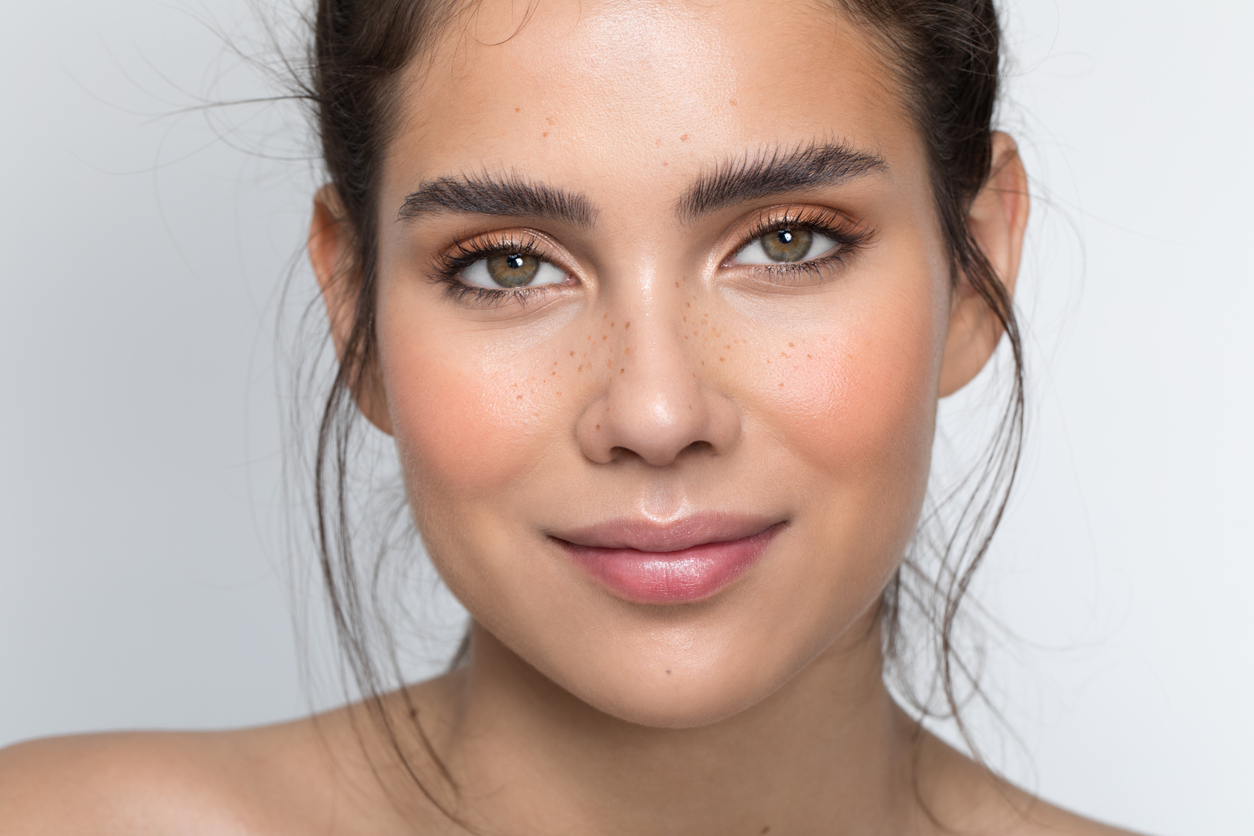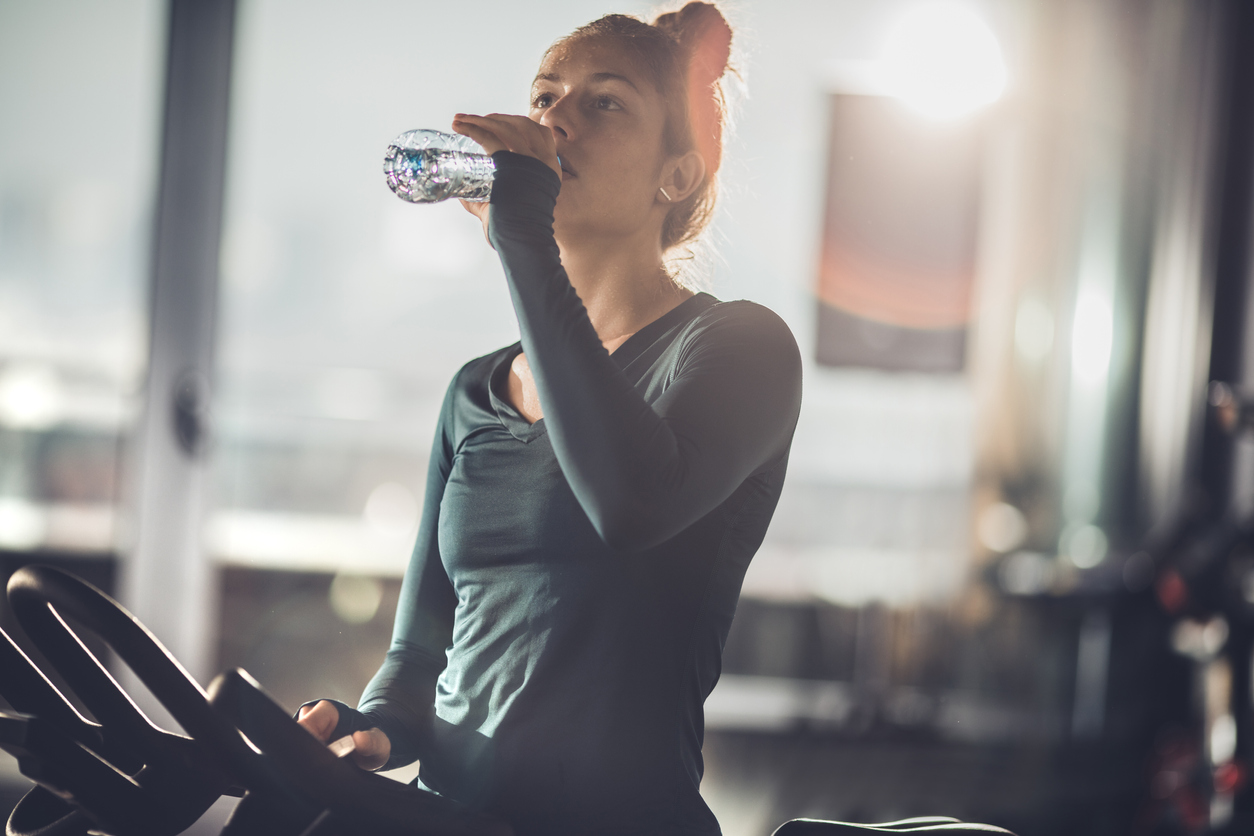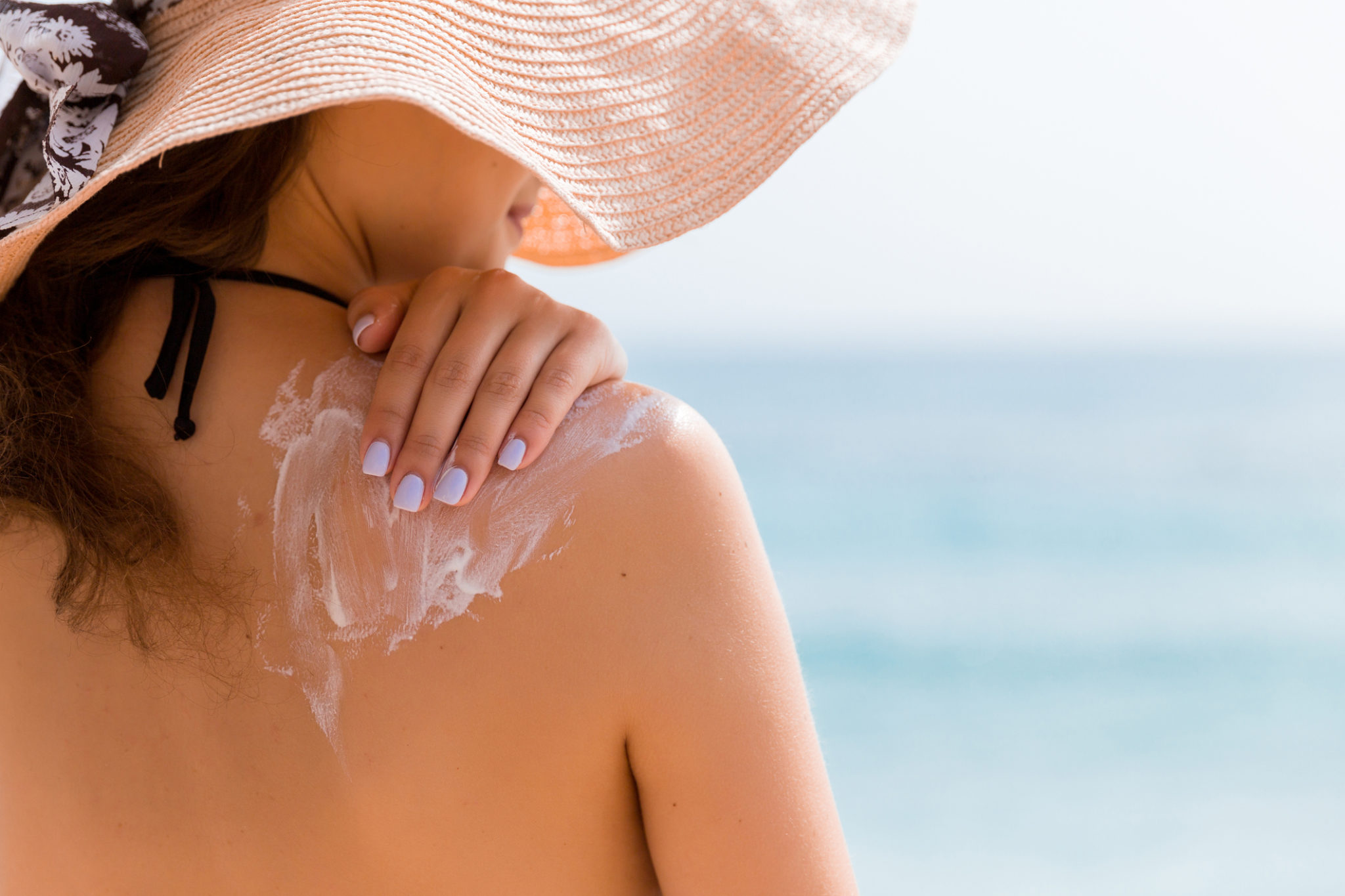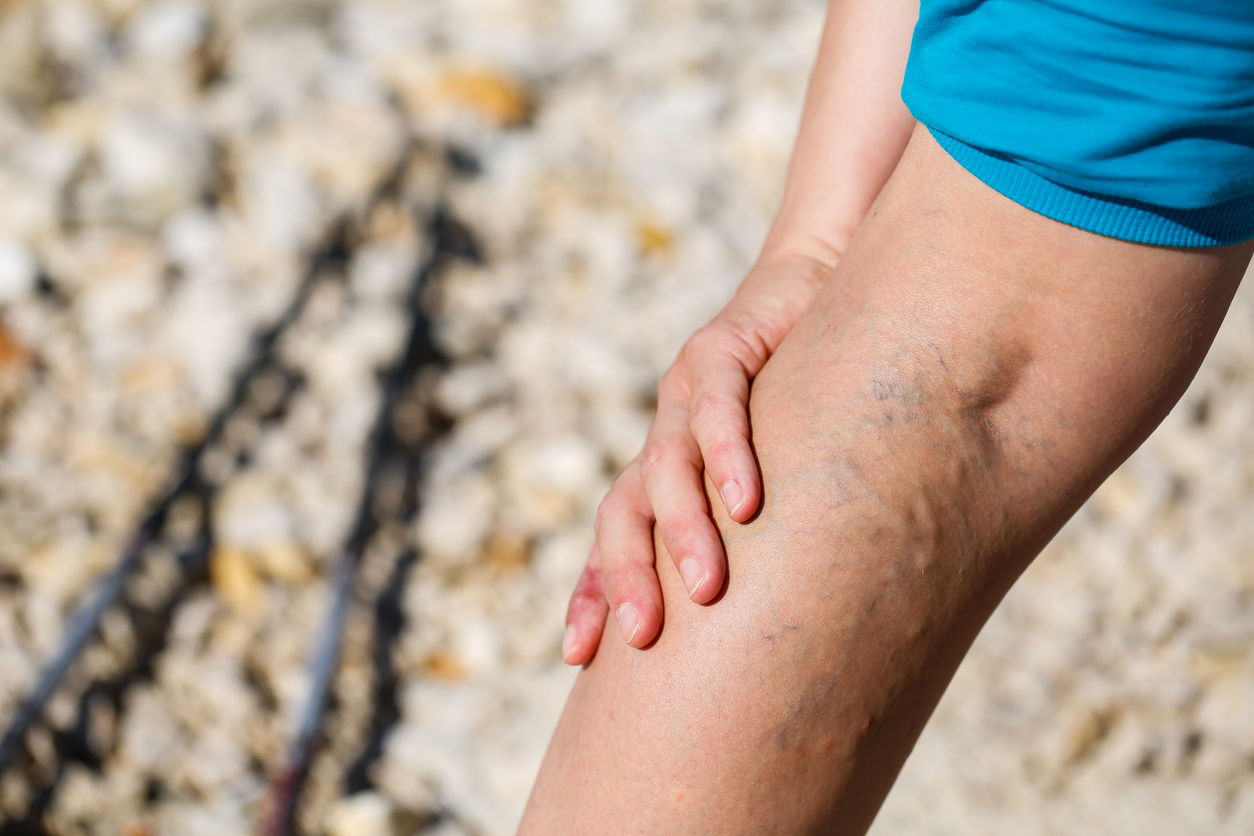13 Simple Lifestyle Changes for Healthy, Vibrant Skin
Skin is an amazing organ, a water-tight, flexible casing strong enough to provide protection from numerous forces. When skin is healthy, it has an even color, an even texture, and feels comfortable. The healthiest skin appears to glow from within.
Most skincare experts agree that skin health requires careful attention to cleansing, exfoliating, and moisturizing with products specific to your skin type. While numerous people use these products, many are not achieving the results they were hoping for.
If you are unhappy with the health or appearance of your skin, it may be helpful to reevaluate your approach. Making a few simple changes to your lifestyle could have a significant impact. Since the surface of your skin renews itself every 28-30 days, you will soon be rewarded for consistent effort.

Healthy Skin Begins with Healthy Habits
Skin is a complex organ comprised of numerous tissues combined to function as a single structure. Your body is continuously creating new skin cells and replacing worn, damaged cells. New skin cells are plump and relatively square. As they make their way through the layers of your epidermis, they flatten to form a moisture-proof barrier that protects your body from the elements. Once reaching the surface of your skin cells are discarded at a rate of about 40,000 cells per hour.
Skin health is affected by numerous internal and external factors, from your diet to your skincare habits. Your skin does not need a 20-step skincare routine to stay healthy. Making a few simple changes to your lifestyle may be all you need to take your skin to the next level. Consider the value of the following suggestions.
#1 Promote Skin Health with a Balanced Diet
Nutritional science confirms the relationship between food choices and your skin. Researchers have identified the vitamins, minerals, and amino acids essential to skin health. Research also shows that overindulging in processed foods will affect the appearance of your skin, the clarity and texture.
For radiant skin, your diet should include plenty of lean protein, an ample amount of colorful vegetables, whole grains, fruit, nuts, and heart-healthy fats. Maintaining a healthy diet is even shown to stall the effects of skin aging.
Some of the many foods proven beneficial to skin health include eggs, avocados, and nuts, for their biotin content, orange and yellow fruits and vegetables for their vitamin A, and any foods high in vitamins C and E because they protect your skin from free-radical damage.
#2 Avoid Simple Carbohydrates
Simple carbohydrates like processed sugar, white bread, white rice, and prepackaged snack foods can compromise the health of your skin and dull its appearance. When you ingest sugar in any form, your insulin levels spike. Insulin spikes cause inflammation throughout your body.
Inflammation will aggravate existing skin conditions, including acne, eczema, and rosacea, and contribute to premature aging. That’s because Inflammation produces enzymes that break down the collagen in your skin, a process called glycation. Its collagen that keeps your skin firm and resilient. Collagen loss causes skin sagging, fine lines, and wrinkles.
#3 Make Hydration a Priority

Good hydration habits benefit your entire body. Your body needs water to lubricate your joints, distribute nutrients, eliminate waste, and maintain your blood pressure. If you are not staying adequately hydrated throughout the day, your body will pull moisture from your skin leaving it feeling dry, rough, or uncomfortable. While many sources suggest taking in half your body weight in fluid ounces daily, more may be better.
Researchers investigating water consumption on skin health and appearance divided volunteers into two groups. Half the volunteers increased their total fluid consumption by two liters per day for 30 days. The study concluded that increasing hydration has significant skin benefits. The increased hydration was shown to lubricate the upper layers of the skin, decrease the friction between skin fibers, and improve skin elasticity.
#4 Try Green Tea
Green tea is a potent antioxidant high in inflammation-reducing polyphenols. A source of numerous potential health and wellness benefits, green tea is shown to boost brain function, reduce your risk of cancer, help your body burn fat, and protect your skin.
Research shows that drinking green tea can protect your skin from UV damage and reduce inflammation. The vitamin B and vitamin E content promote collagen production and cell regeneration. When applied topically, the naturally occurring tannins act as a gentle astringent to remove excess oil, control breakouts and encourage cell turnover. Dried green tea leaves can also be used as a gentle, skin-friendly exfoliant.
#5 Make Time for Exercise
Regular exercise strengthens your body while significantly reducing your risk of developing cancer, diabetes, and cardiovascular disease. Exercise is also essential for healthy skin. Increasing your heart rate dilates blood vessels which increases the amount of oxygen and nutrients delivered to skin cells. The improved circulation during exercise also helps remove toxins and cell-byproducts from your body.
The boost to your circulation isn’t the only benefit. When you sweat, your immune system releases an antimicrobial peptide called dermcidin, your immune system’s first line of defense against harmful bacteria. As your heart rate increases, your muscles generate IL-15, a protein that powers the mitochondria of your skin cell to act like younger cells. With consistent regular exercise, your skin could act up to 25 years younger at microscopic levels.
# 6 Wear UV Protection Daily

If you are only wearing sunscreen on days you plan for prolonged sun exposure; you may want to reconsider your game-plan. The UV rays that damage your eyes, age your skin, and increase your risk of skin cancer, are present during all daylight hours regardless of temperature or cloud cover.
Left unprotected, skin can thicken, freckle, and develop dark patches (melasma) from short bursts of daily UV exposure. The Skin Cancer Foundation recommends wearing a broad-spectrum product with an SPF of 15 for daily wear. It is important to reapply your sunscreen every two hours. If you plan on spending an afternoon in the sun, you should select a broad-spectrum product with an SPF of 30 or higher. If your skin reacts to chemical-based sunblock, consider switching to a mineral-based product.
# 7 Reduce Water Temperature
If you are one of the many people who enjoy a steaming shower or long soak in the tub, you may want to reevaluate your high-temperature habits. Prolonged exposure to hot water can disrupt your skins natural moisture balance, leaving your skin dry, irritated, and uncomfortable. When hot water over dries your skin, you will likely notice an increase in oil production that could clog your pores.
To protect the health of your skin, refrain from taking hot showers and reduce the amount of time you spend soaking in the tub. If your skin is red, the water is too hot. Using a mild, fragrance-free, soap-free cleanser will help your skin stay hydrated while protecting your natural oil barrier. Lukewarm temperatures are better for your skin and less likely to cause broken capillaries.
# 8 Moisturize Damp Skin
Many people mistakenly believe that using a moisturizer adds a significant amount of moisture to their skin. That’s not quite how moisturizers work. While moisturizing lotions do contain some water, most moisturizers rehydrate the outermost layer of your skin by forming a protective barrier between your skin and dry air. That means moisturizing products don’t add moisture, they reduce evaporation.
To get the best results from your moisturizer, apply a liberal amount to clean, damp skin. Moisturizing skin while it is damp, within three minutes of stepping out of the tub or cleansing your face, seals in moisture.
If your skin is very dry, creams and oils are likely to work more effectively than lotions. If your skin is oily, choose the appropriate oil-free moisturizer for your skin type. Whatever your skin type, pay close attention to the ingredients listed in your products and do your homework. Many skincare products contain alcohol, fragrance, and other ingredients that can cause irritation.
# 9 Pamper Skin with Coconut Oil
Coconut oil is a versatile product with numerous skincare benefits. Organic, cold-pressed coconut oil is ideal for removing makeup, softening rough heels and elbows, soothing skin irritation, and moisturizing your skin while restoring its lipid barrier. The antimicrobial properties of coconut oil are shown to be more beneficial for blemish-prone skin than benzoyl peroxide.
You can also use coconut oil as a base for a natural body scrub. Simply mix coconut oil with coconut sugar and gently apply the mixture to damp skin in a circular motion. Coconut oil is solid at room temperature but quickly turns liquid from the warmth of your skin.
#10 Exfoliate with Care
Skincare experts seem to agree that exfoliating is an important step in maintaining the health and appearance of your skin. There are different types of exfoliating products. Chemical exfoliants like alpha hydroxy acids and glycolic acids loosen the bond between skin cells, while manual exfoliants like scrubs, brushes, and loofahs rely on friction. These products should not be used together.
While the concept of removing complexion-dulling dead skin cells seems like sound advice, it’s important to know that many people over-exfoliate their skin. Over-exfoliating can dry your skin and cause irritation. If your skin looks dry you may be tempted to use an exfoliant more often, perpetuating the problem. Over-exfoliated skin often appears dehydrated.
For most people, a gentle, twice-weekly lathering with a washcloth is all that is needed to keep skin looking fresh and flake-free. The more aggressive your product, the less often you should exfoliate.
#11 Consider LED Skin Treatments
LED skin therapy is a safe, non-invasive treatment option for numerous skin conditions. Unlike laser treatment, LED lights do not heat your skin and cannot cause thermal injury. LED treatments send low-level light into the deeper layers of your skin. The effects are determined by the color of the light.
Red LEDs are shown to stimulate cellular activity, increase collagen production, minimize the appearance of fine lines, and reverse the effects of sun damage. Blue LED therapy kills bacteria below the surface of the skin, clears breakouts, and minimizes the appearance of acne scars.
Professional phototherapy treatments require multiple sessions over several months. Results can usually be seen within 2-3 months of consistent use. Home LED devices are shown to be nearly as effective as professional treatments, but it may take longer to achieve the same results. LED phototherapy can also be used to minimize the appearance of scars, stretch marks, and skin discolorations.
#12 Make Sleep a Priority
During sleep, skin cell metabolism increases and moisture balance is restored. But sleep deprivation affects more than the health and appearance of your skin. Not getting enough quality sleep increases your risk of heart disease, mood disorders, and weight gain. The results of sleep deprivation are cumulative.
When you skimp on sleep, chances are your skin will bear the burden. You will likely notice dark circles, puffy eyes, and sallow skin. Fluid accumulation is a sign that your body did not have adequate time to achieve fluid balance. Maintaining a consistent sleep schedule could improve the moisture content of your skin and reduce the frequency or severity of breakouts.
#13 Consult a Dermatologist for Lingering Skin Issues
If lifestyle modifications and self-care fail to improve the health and appearance of your skin, consider scheduling a consultation with a skin specialist, a dermatologist. Your dermatologist is the best source of information on disorders and conditions affecting the health of your hair, skin, and nails.
Your dermatologist can suggest the best treatment options for all your skin concerns, from uncomfortable skin conditions to cosmetic issues. It is particularly important to schedule an appointment if your skin concerns include spots, discolorations, or a sore that will not heal.

Problematic Veins Can Affect the Health and Appearance of Your Skin
If your skin concerns include broken capillaries or spider veins, it’s important to know that over-the-counter preparations marketed to reduce their appearance are rarely effective.
For the treatment of broken capillaries, spider veins, and varicose veins, you need the expertise of a qualified vein specialist. Most vein treatments are minimally invasive and performed in the comfort of your doctor’s office. With treatment, problematic veins fade from view as circulation is redirected to healthy veins.
For a vein treatment in Henderson, NV, contact Vegas Valley Vein Institute. Significant advances in technology and methodology have made treating vein disease and their related conditions easier and more effective than ever before. At Vegas Valley Vein Institute, you will benefit from the Valley’s leading vein care specialist, Dr Irwin Simon, and his comprehensive approach to traditional and non-surgical treatment options.
From Your Kitchen to Clear Skin: 10 Home Remedies for Acne - Pure Beauty DIY
[…] get rid of acne naturally at home, focus on a combination of gentle skincare and lifestyle changes. Start by using tea tree oil or diluted apple cider vinegar as spot treatments to fight bacteria […]
Unlock Your Radiance: Our Effective Skincare Routine for Dull Skin - Skin How
[…] Dehydrated skin? That’s a one-way ticket to dullsville. Sipping on that H2O is like giving your skin a big, refreshing drink. It’s the MVP of hydration by keeping the top layer lubed up and fab (Healthline). Hydrate right and your skin gets all elastic and nice, reducing the friction that gives skin a hard time (Vegas Valley Vein Institute). […]
Effective Acne Treatment: Clear Skin Solutions
[…] plenty of water to keep your skin hydrated, as19 more fluid intake can greatly benefit your […]
Best Natural Skin Care Remedies For Glowing Skin
[…] https://vegasvalleyvein.com/skin-care/13-changes-for-healthy-skin/ […]
10 Secrets To Achieving Glowing Skin Naturally
[…] https://vegasvalleyvein.com/skin-care/13-changes-for-healthy-skin/ […]
Top Tips For Achieving Healthy Glowing Skin Naturally
[…] https://vegasvalleyvein.com/skin-care/13-changes-for-healthy-skin/ […]
13 Easy Tips for More Glowing Skin
[…] get you on the path to glowing, healthy skin. Don’t forget to be consistent and gentle with your skin, and keep in mind proper nutrition and an active lifestyle play an essential role in glowing skin. […]
What Are The Most Effective Clear Skin Solutions For Acne?
[…] https://vegasvalleyvein.com/skin-care/13-changes-for-healthy-skin/ […]
How Can I Naturally Get Glowing Skin?
[…] https://vegasvalleyvein.com/skin-care/13-changes-for-healthy-skin/ […]
Natural Beauty Hacks: My Favorite Skin-Clearing Tips - Flair Trend Nova World
[…] https://vegasvalleyvein.com/skin-care/13-changes-for-healthy-skin/ […]
The Ultimate Skin Care Routine for Glowing Skin You’ll Love – Opulona
[…] (from avocados and nuts), and zinc (found in shellfish) are some of your best allies. Explore these simple lifestyle changes for healthy skin and take the guesswork out of building a skin-friendly […]
Preppy Skin Care Hacks for a Flawless, Classy Glow - Patchology.ORG
[…] fats from nuts and avocados, plus omega-3s from oily fish to reduce inflammation. A diet rich in antioxidants can also combat oxidative stress, further promoting vibrant skin. Additionally, consuming foods […]
7 Hacks That Tighten Saggy Skin Without Surgery – Vibe N GLow
[…] skin elasticity, while electrolytes from coconut water enhance moisture retention. For those making simple lifestyle adjustments, cutting processed sugars and quitting smoking yields visible improvements within weeks. […]
Why Your Skin Won’t Stay Hydrated (And What Really Works) – Vibe N GLow
[…] more targeted lifestyle adjustments that transform hydration from fleeting to fundamental. Remember—every sip, bite, and mindful […]
order androxal cost australia
get androxal buy dublin
discount androxal retail price
buying enclomiphene australia cheap
order enclomiphene buy online usa
order enclomiphene without a prescription
brand rifaximin online
cheap rifaximin price in canada
online order rifaximin generic prices
cheapest buy xifaxan generic alternatives
xifaxan online without prescription usa
ordering xifaxan cheap store
how to order staxyn uk cheap purchase buy
buy cheap staxyn buy in australia
how to order staxyn purchase usa
cheap avodart australia buy online
buying avodart generic next day delivery
online order avodart buy in london
buying dutasteride australia discount
order dutasteride generic real
cheapest buy dutasteride purchase line
ordering gabapentin generic equivalent buy
buying gabapentin generic next day delivery
online order gabapentin price netherlands
acheter kamagra distribuer
expédition fedex le lendemain pour kamagra
pharmacie en ligne canadienne kamagra 25mg pas cher
cheap enclomiphene generic enclomiphene
ordering enclomiphene cheap wholesale
online order enclomiphene generic in usa
buying flexeril cyclobenzaprine mastercard buy
buy flexeril cyclobenzaprine canada generic
purchase flexeril cyclobenzaprine canadian discount pharmacy
cheap fildena australia online no prescription
cheap fildena usa sales
cheap fildena low price
buy itraconazole cheap usa
itraconazole low price
online order itraconazole generic india
objednat kamagra online z kanady
kamagra odesláno přes noc bez lékařského předpisu
kamagra přes noc bez lékařského předpisu
Healthy Skin: Diet And Lifestyle Tips For Radiance
[…] 13 Simple Lifestyle Changes for Healthy, Vibrant Skin – https://vegasvalleyvein.com/skin-care/13-changes-for-healthy-skin/ […]
Simple Lifestyle Beauty Changes That Work – Poshiva
[…] effective beauty changes aren’t just skin-deep they’re lifestyle enhancements that uplift your confidence and […]